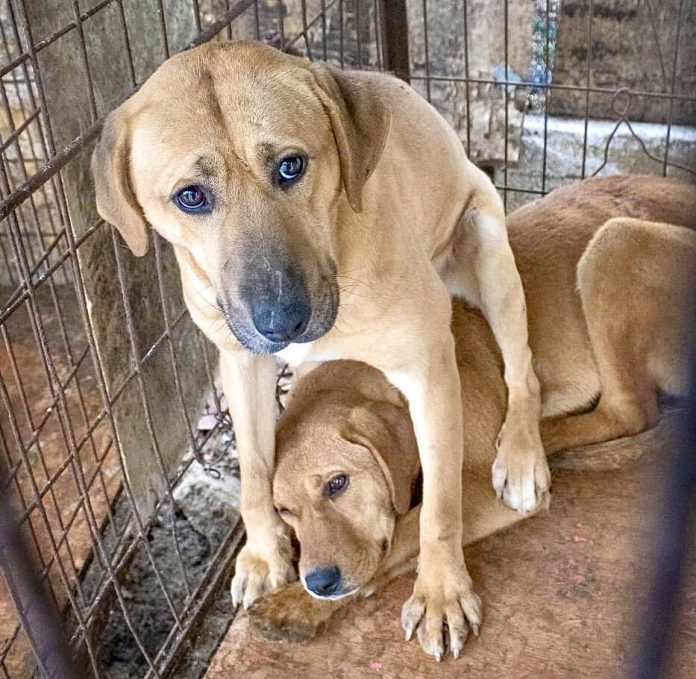Korean animal protection groups have joined forces to save 50 dogs from being euthanized on a dog meat farm in Yongin city after the facility was closed down by the authorities.
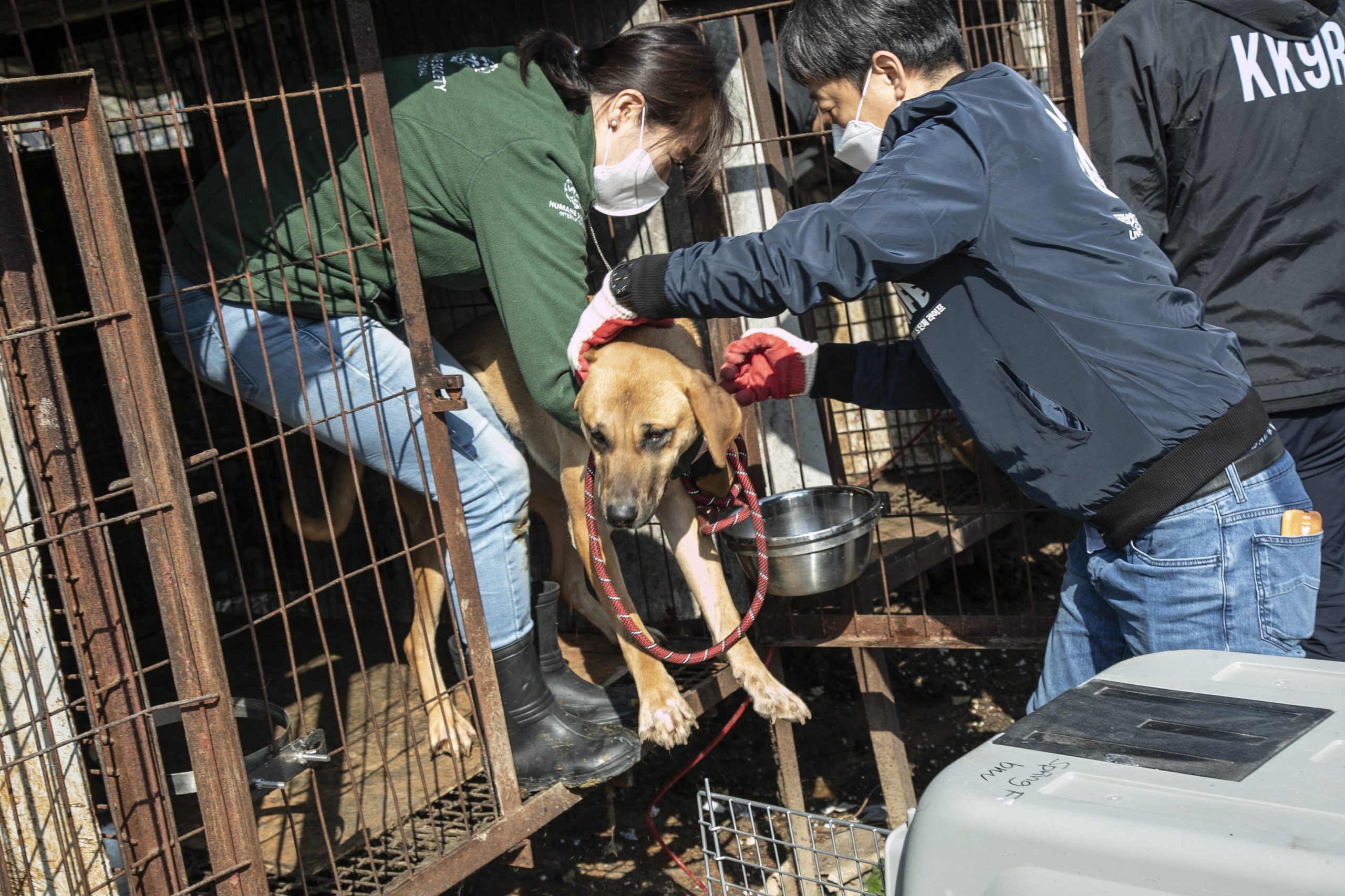
The dogs were found by the rescuers locked up in barren metal cages without water or proper food, after the four farmers running the farm had moved off the property following a demolition order by local officials. The farm had been operating in breach of the national Animal Protection Act.
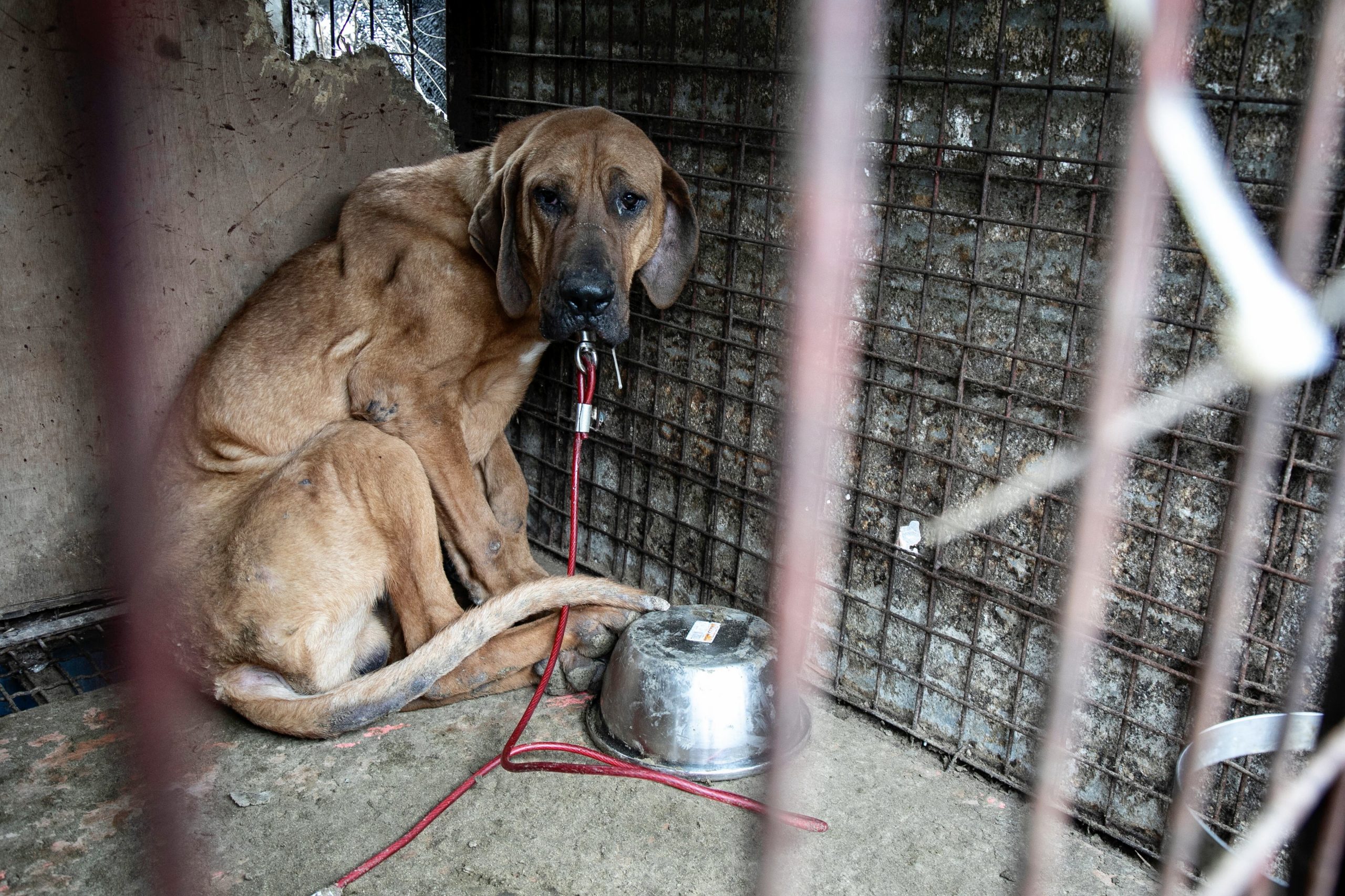
Humane Society International/Korea, LIFE, KoreanK9Rescue, and Yongin Animal Care Association stepped in and worked together with the local authorities to save the dogs so that the structures could be demolished.
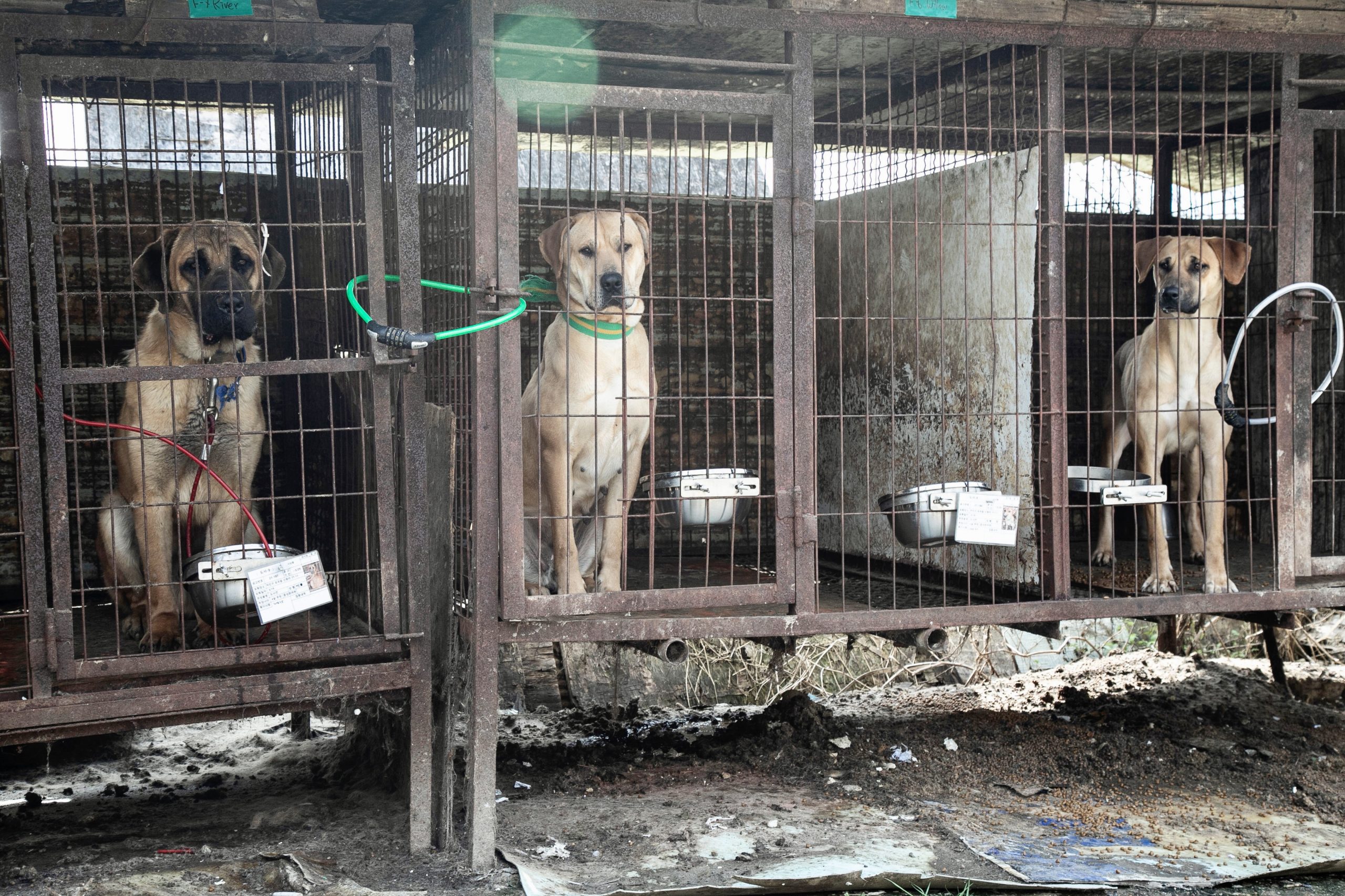
Some of the dogs were caged next to animals that were being slaughtered, and were traumatized from watching and hearing the dogs being killed. All of the animals, including jindos and mastiffs, which are breeds often promoted as “meat dogs” by the industry, are now receiving veterinary care and vaccinations. They will eventually be flown to HSI’s temporary shelters in the United States and Canada to find loving forever homes.
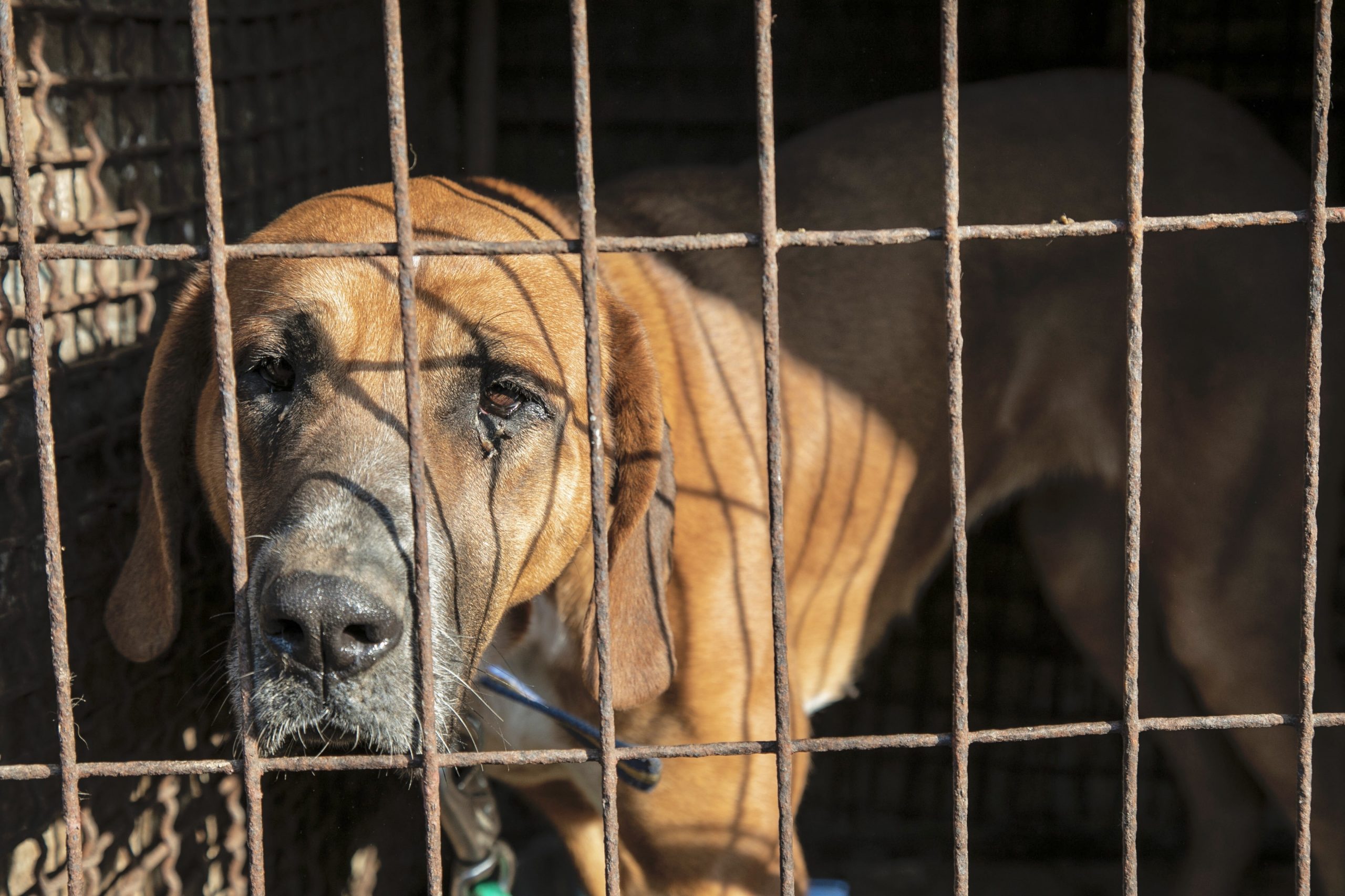
“These efforts show how much passion there is in South Korea to end the dog meat industry. These dogs were in a pitiful state, skinny and frightened and existing in terrible conditions, Nara Kim, HSI/Korea’s campaign manager, said in a statement sent to WAN. “I am horrified to think how many dogs lost their lives there.”
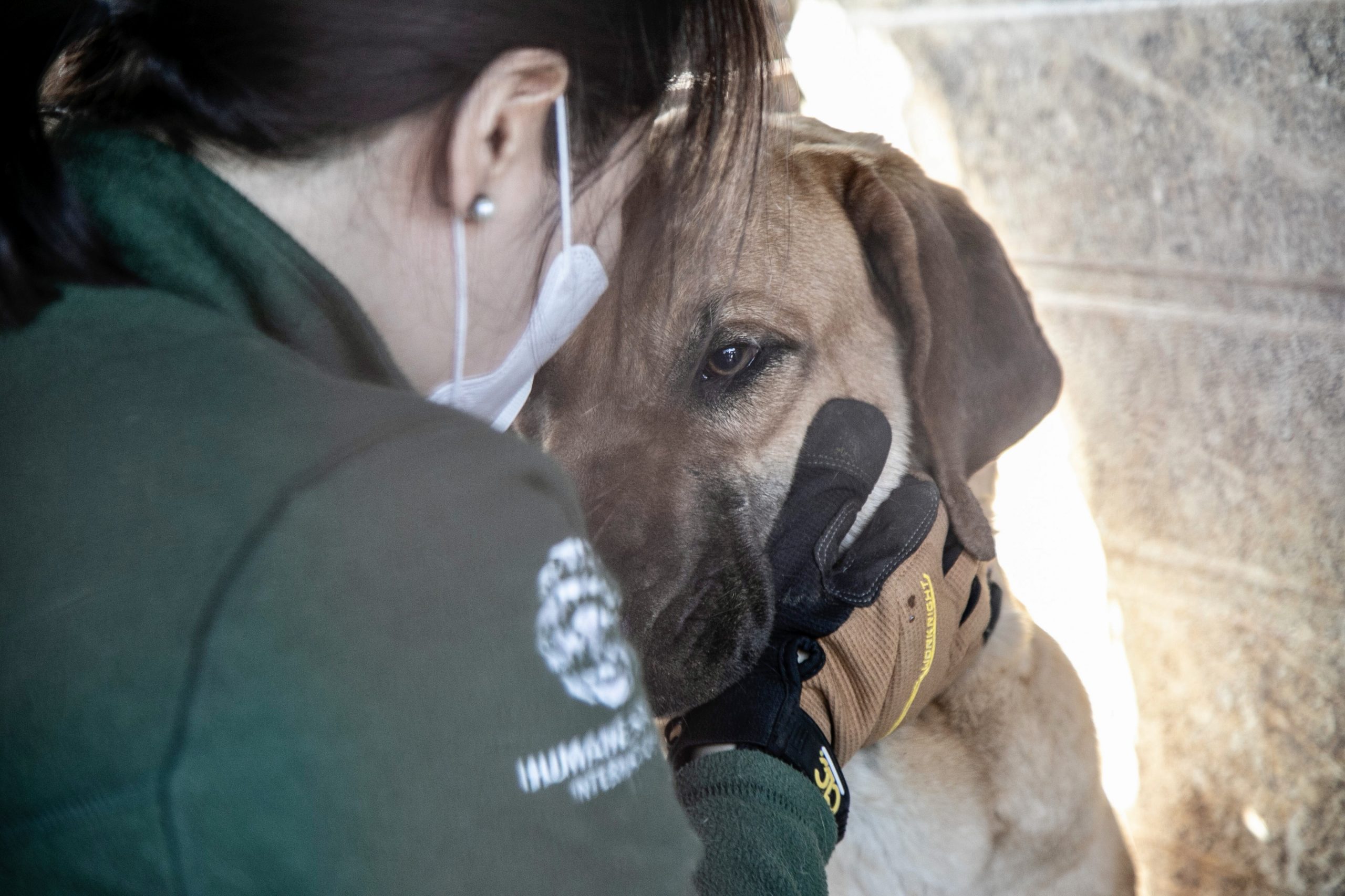
Many of the dogs were suffering from malnutrition, as well as painful skin diseases and sore feet due to standing on wire cage floors. Others had also been left with painful and untreated head and ear wounds. A number of the animals were extremely afraid of people, left tightly curled up and trembling in the back of the cage.
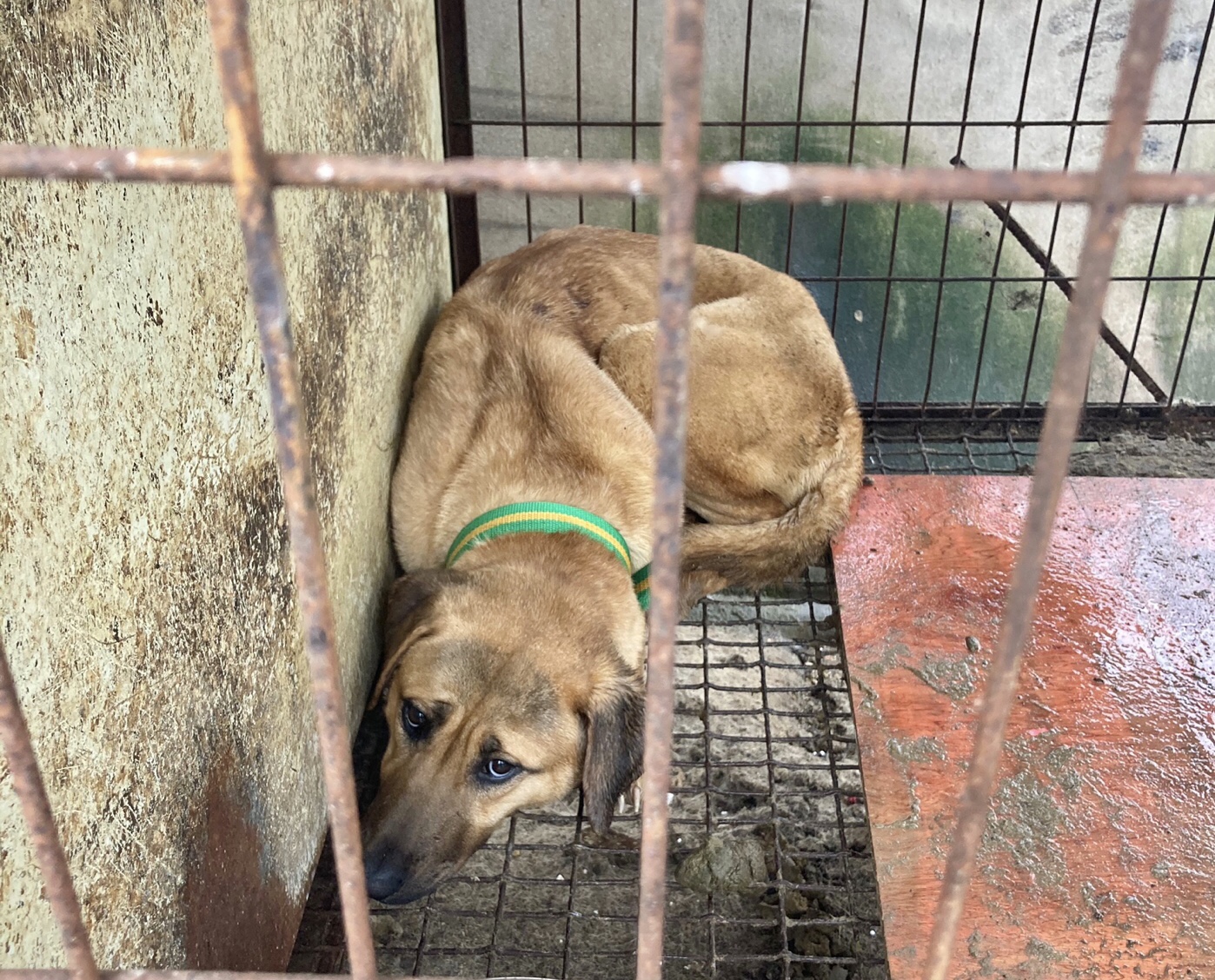
“It has been 30 years since the Animal Protection Act was established in Korea, however still so many animals are not protected properly. Government officials should make and implement policies to ban the slaughter of dogs for food,” stated In-Seob Sim, President of LIFE. “We should no longer subject this misery on future generations of dogs.”
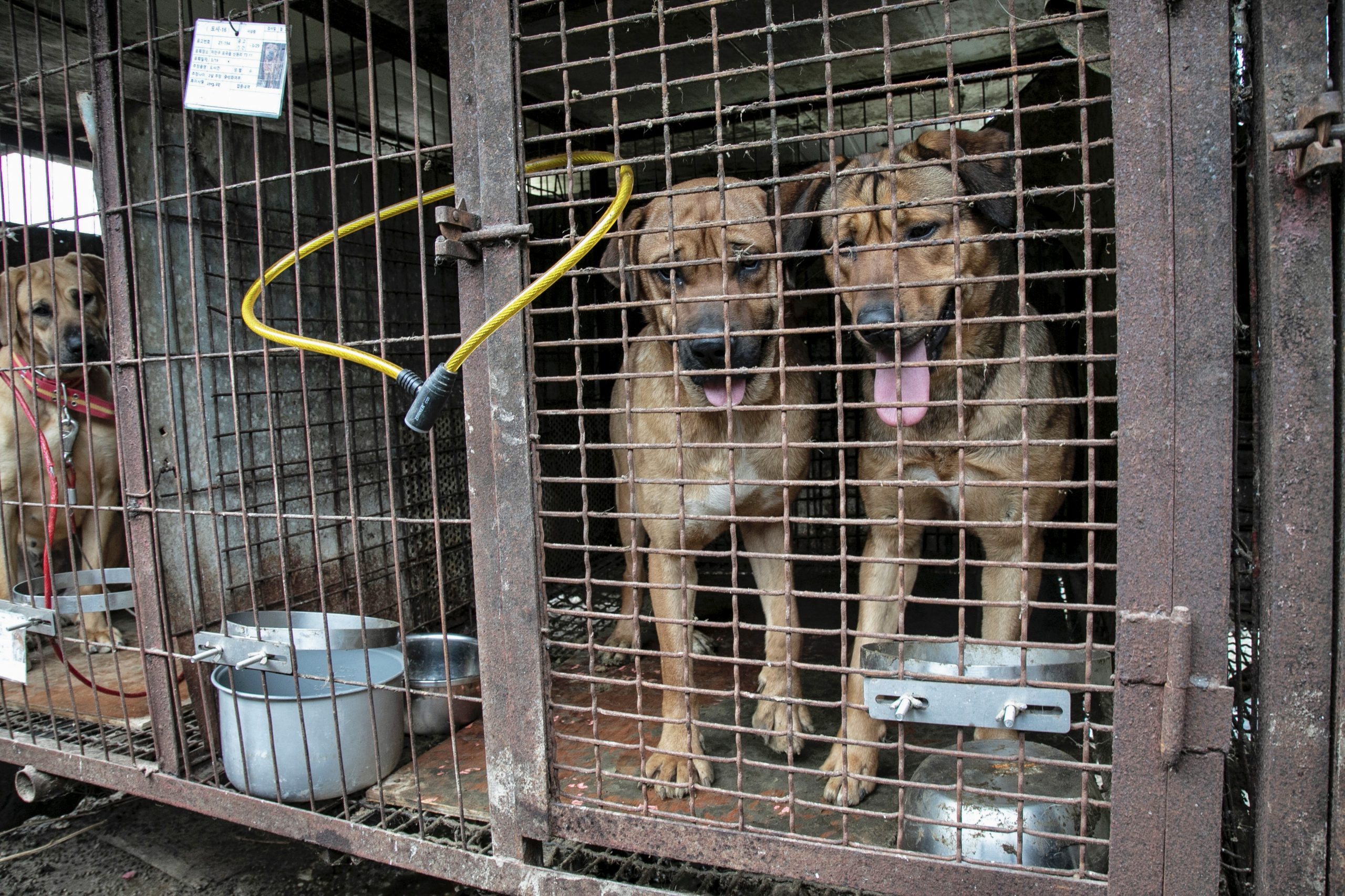
Tragically, an estimated two million dogs are kept on dog meat farms across South Korea.
“It is significant that all these dogs are being given the chance of a new life instead of being euthanized or killed at the slaughterhouse. However, there are still countless dogs out there bred for meat who are still suffering,” shared Hyun Yu Kim, Founder of KoreanK9Rescue. “We are calling for urgent action from the government to introduce laws to ban the dog meat trade and protect dogs like these.”
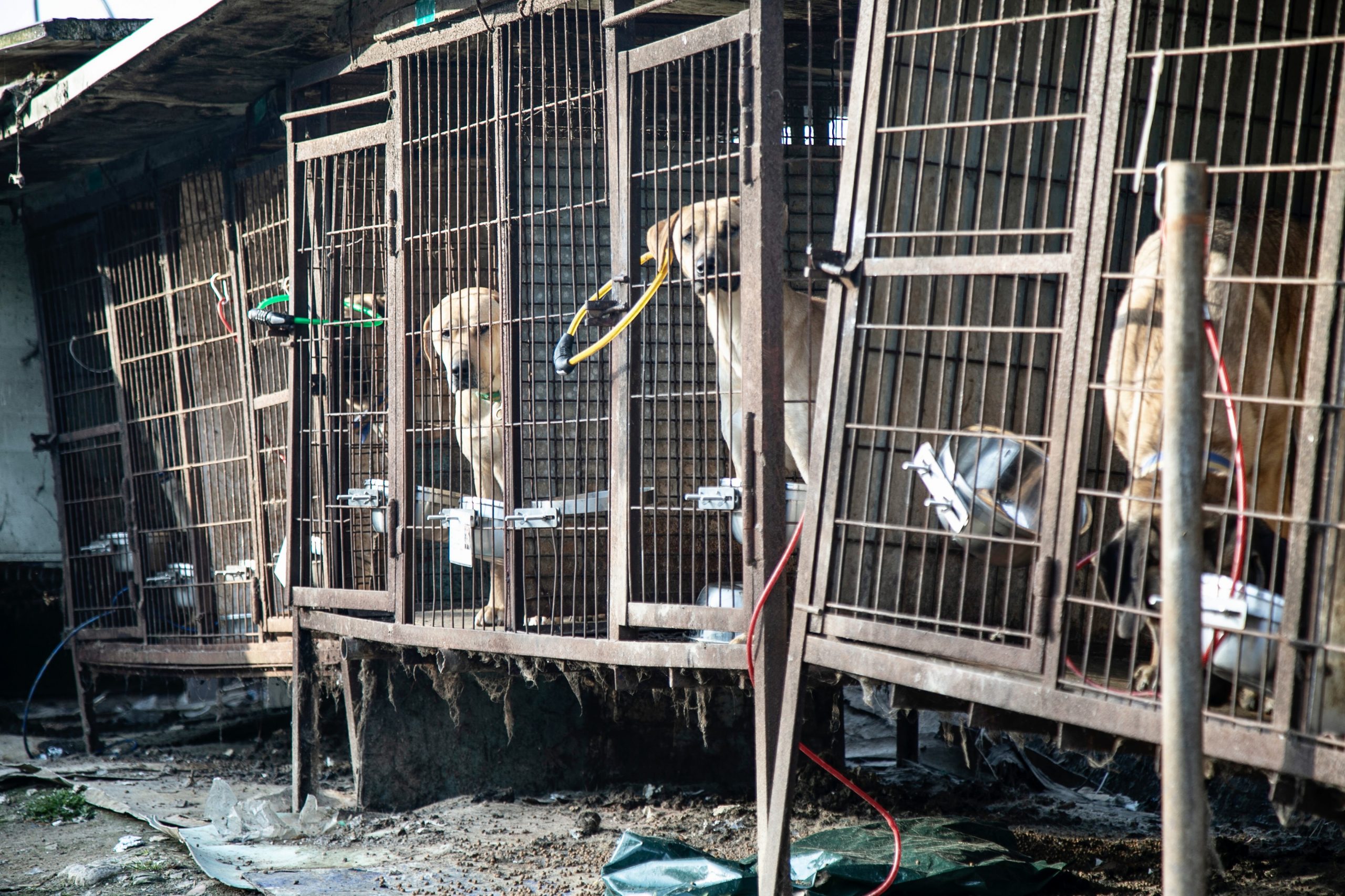
According to Yang-Jin Cho, of the Animal Protection Division in Yongin, city officials felt bad for the abandoned dogs and are pleased that the animal groups were able to help them.
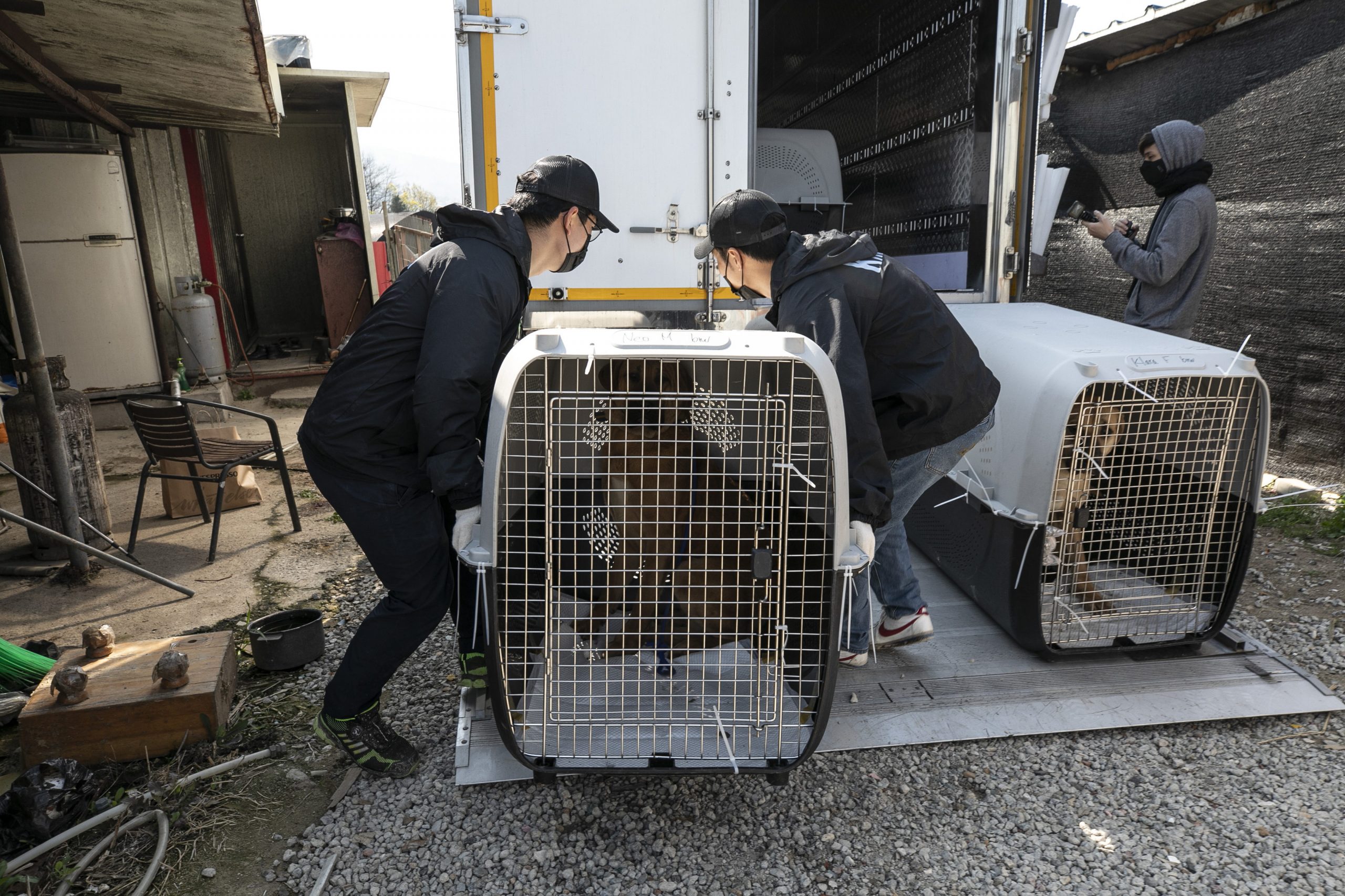
Humane Society International/Korea, which has closed down 17 dog meat farms in the country, is campaigning for legislation in South Korea to end the dog meat trade. A recent opinion poll commissioned by HSI/Korea and conducted by Nielsen indicates growing support for a ban on the dog meat trade, with nearly 84% of South Koreans saying they don’t or won’t eat dog, and almost 60% supporting a legislative ban on the trade.
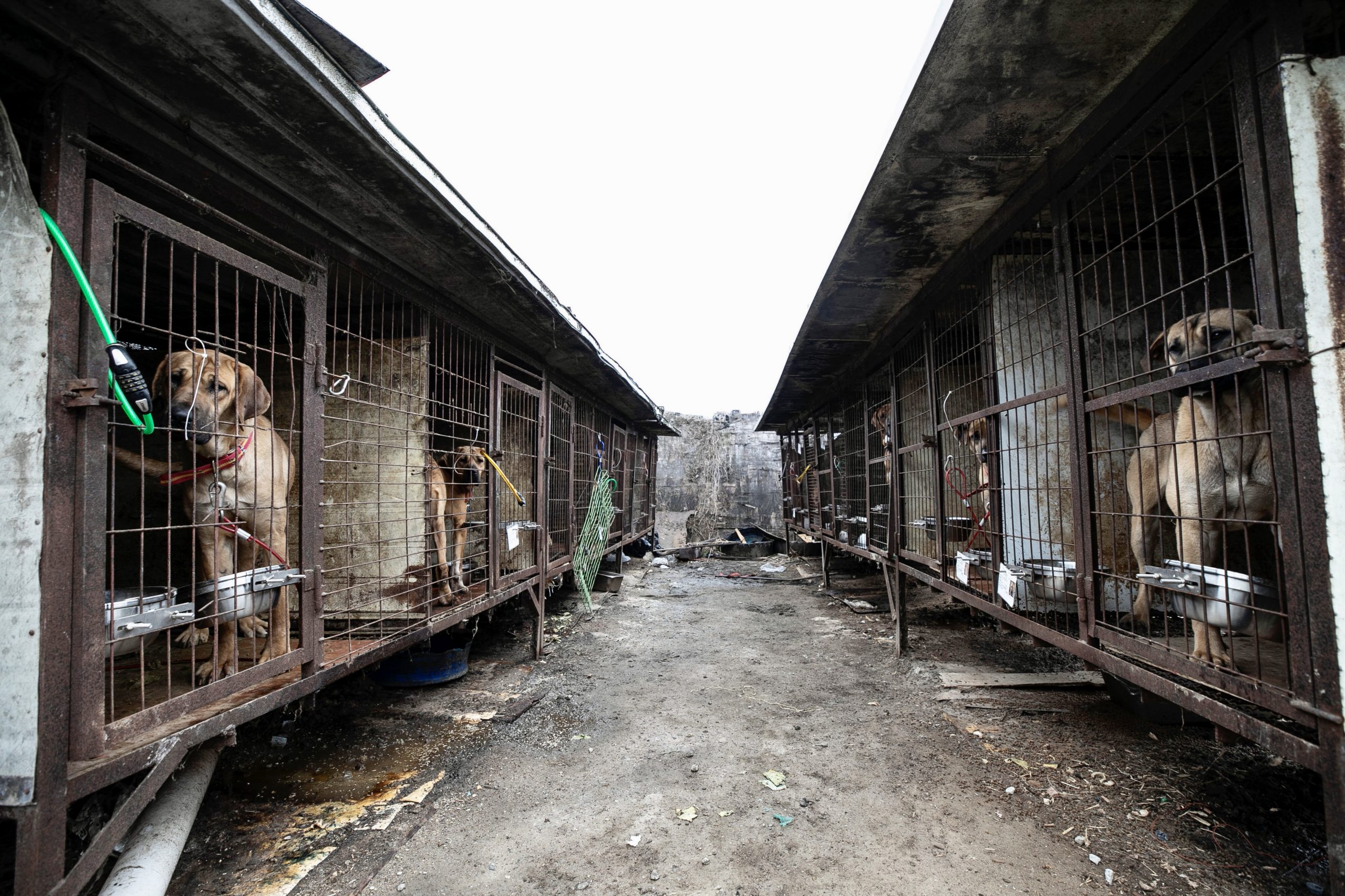
As previously reported by WAN, recent crackdowns by authorities to curb the dog meat industry include the shutting down of Taepyeong dog slaughterhouse by Seongnam City Council in November of 2018, followed in July of 2019 by the closure of Gupo dog meat market in Busan, and a declaration in October of last year by the mayor of Seoul that the city is “dog slaughter free.”
In November of 2019, a Supreme Court found that a dog farmer who electrocuted dogs was in violation of the Animal Protection Act, a judgement that could have huge implications for an industry that relies almost entirely on electrocution as a killing method.
You can help all animals and our planet by choosing compassion on your plate and in your glass. #GoVeg

